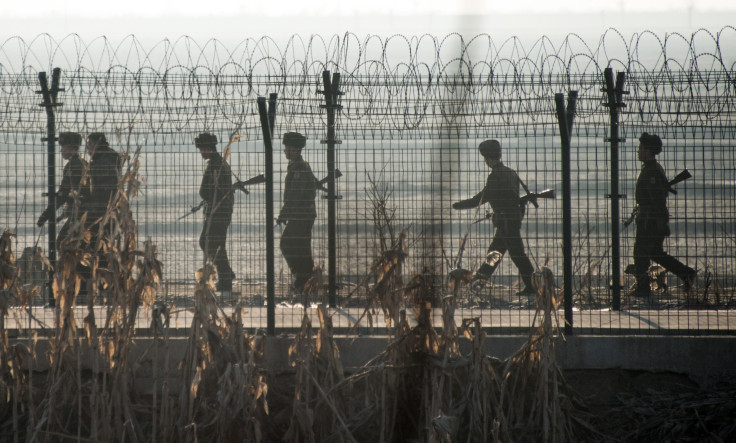North Korean Defector’s Survival A ‘Miracle,’ South Korean Surgeon Says

South Korean surgeon Lee Cook Jong, who tended to North Korean defector Oh Chong Song after he was flown in from the border that divides the two halves of the Korean Peninsula, recently opened up about the harrowing experience.
Lee got to know about 24-year-old Oh’s history after he was informed that a high-priority patient was arriving at the Ajou University Hospital, a U.S.-modeled trauma center in Seoul, South Korea, Nov. 13.
"I was informed that he was badly shot by North Koreans," Lee told CNN.
A severely injured Oh was dropped off by U.S. Black Hawk helicopter, on the helipad located a few hundred feet from the medical facility. Lee said he went out to meet his patient and found his condition was extremely critical.
"His vital signs were so unstable, he was dying of low blood pressure, he was dying of shock," Lee said. "He was like a broken jar. We couldn't put enough blood into him."
The story of the brave North Korean defector crossing the border and reaching South Korea has been one of the tales of heroism that had reverberated throughout the world last month. Although Oh managed to make his way to safety, it was not before he was shot five times by North Korean soldiers.
What ensued were six hours of grueling efforts by the doctors in the hospital’s trauma room to save Oh’s life, which was initially proving to be difficult because the team was struggling to get enough oxygen inside his lungs.
“He has one (bullet) through his right knee joint; the other one is the tricep muscle area on his arm, the third one was his back; chest and coming out from his shoulder,” Lee said.
But if the doctors thought removing the bullets was going to be their biggest challenge, they were wrong. Lee said he got the biggest shock of his 20-year medical career when he encountered white parasites crawling inside Oh’s bowel system, which was perforated by bullets.
Throughout the five-hour-long surgery, during which the doctors removed bullets and parasitic worms (some as long as 10 inches) from Oh’s body, the North Korean defector had multiple close brushes with death, Lee said. He added the fact that Oh survived the surgery was nothing short of a “miracle.”
Lee performed a second surgery on Oh two days later, after which he stayed by the latter’s side throughout his recovery.
“I'm very proud of him. He fled from North Korea seeking for liberty, much more freedom. It's quite easy to say, but it's really, really difficult to make it happen, so I admire him," Lee said.
Although Oh is fast-pacing his way to complete recovery, he still has to deal with complications such as tuberculosis and hepatitis B, which are hindering his liver function. In addition to the medical problems, he is suffering from nightmares, and is unable to reconcile with the fact that he was no longer in the torturous environment of North Korea.
"He actually asked me, 'is it really South Korea?' And I said, 'have a look at that flag. Have you ever seen that flag in North Korea?'" Lee said.
Until Oh’s situation improves, his questioning scheduled by the South Korean officials has been postponed, on Lee’s advice.
© Copyright IBTimes 2024. All rights reserved.












